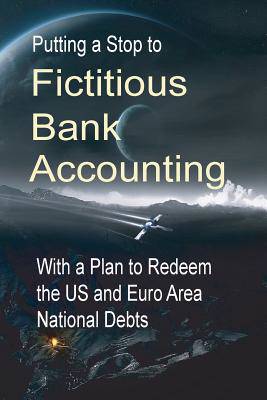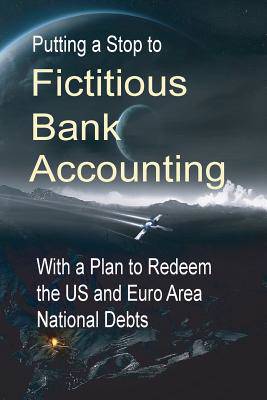
- Afhalen na 1 uur in een winkel met voorraad
- Gratis thuislevering in België vanaf € 30
- Ruim aanbod met 7 miljoen producten
- Afhalen na 1 uur in een winkel met voorraad
- Gratis thuislevering in België vanaf € 30
- Ruim aanbod met 7 miljoen producten
Zoeken
Putting a Stop to Fictitious Bank Accounting
With a Plan to Redeem the US and Euro Area National Debts
Michael Schemmann
Paperback | Engels
€ 15,95
+ 31 punten
Omschrijving
This short 70-page book explains the commercial banks' violation of International Financial Reporting Standards (IFRS) in their creation of tens of trillions of fictitious deposits out of nothing, relying on government bailouts while the same governments keep on borrowing the banks' fictitious credits that are comprising our $18 trillion and 10 trillion euros of national debts. Irving Fisher (1935) writes in his famous "100% Money" book: Bankers Often Oppose Their Own Interests. Some readers may be skeptical of the claim that the 100% plan would help the bankers, inasmuch as the rank and file of bankers will probably oppose it. To meet this skepticism, the following is quoted from Neil Carothers, writing in the New York Herald Tribune, Sunday, November 25, 1934: "For more than 100 years the banks of this country have stubbornly and unwisely failed to keep abreast of the times - to the injury of their own well being and to the damage of the nation. They fought the banking reforms of the Second United States Bank and reaped their own destruction in the depression of 1837. They blindly fought every attempt to obtain common decency in bank note issue form 1830 to the Civil War, only to have every cent of profit from note issue taken from them by the national banking act of 1863. "They balked like a sulky mule at every proposal for a more rational system from 1890 to the [First] World War, only to have a Federal Reserve system forced upon them in 1913. Even then they obstructed every proposal for a unified system, and eventually got a hybrid two-system scheme, whose weakness was one of the causes of the collapse in 1929. Eighty years later nothing has changed. The author is a professional banker, a licensed CPA in the State of Washington, and a university professor of accounting and finance emeritus. His plan redeems the national debts in a non-inflationary sterile way and balances the governments' budgets
Specificaties
Betrokkenen
- Auteur(s):
- Uitgeverij:
Inhoud
- Aantal bladzijden:
- 72
- Taal:
- Engels
Eigenschappen
- Productcode (EAN):
- 9781511593595
- Verschijningsdatum:
- 4/04/2015
- Uitvoering:
- Paperback
- Formaat:
- Trade paperback (VS)
- Afmetingen:
- 152 mm x 229 mm
- Gewicht:
- 117 g

Alleen bij Standaard Boekhandel
+ 31 punten op je klantenkaart van Standaard Boekhandel
Beoordelingen
We publiceren alleen reviews die voldoen aan de voorwaarden voor reviews. Bekijk onze voorwaarden voor reviews.











